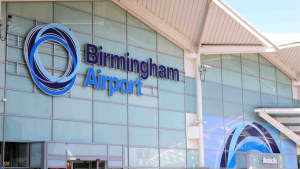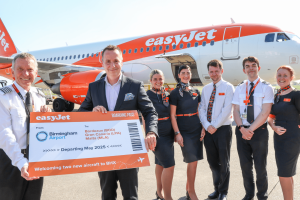Claritas: The way to Timbuktu

|
|
AS a child of the ’70s and ’80s, Timbuktu was a far off exotic place where silly things happened. In reality, it is a desert town in Mali, an impoverished central African country recently ravaged by war between Al Qaeda and the French-backed government. Despite this backdrop, Mali invested more as a proportion of its GDP than the UK in 2012. Sadly, there were lots of countries, rich and poor, who invested more of their GDP than the UK- we were ranked 159th on a table of investment per GDP published by The Economist recently, and we spent a meagre 13.5% of GDP on the assets which provide the basis for future production. This measure excludes expenditure on replacement assets and so naturally favours developing countries with fewer assets to replace but, nevertheless, the UK fell a long way behind the EU average of 17.8%, let alone the international average of 24%. With the economic recovery now gathering pace driven by consumer spending and house price growth, it may seem churlish but how long can the UK continue to compete internationally and create wealth when we invest so little? We have been cheered in the Midlands recently by the export success of some of our major manufacturers, but the investment they are making is in sharp contrast to the economy as a whole. The UK’s trade deficit remains stubbornly large, despite sterling being significantly weaker against both the US Dollar and the Euro than it was five years ago. In the current climate, it would be very easy to blame the banks for the lack of investment, but are other factors to blame? “The most competitive tax system in the G20” When the current coalition Government took office, it promised to create the most competitive tax system in the G20. That promise resulted in welcome changes to the tax system, including enhancements to R&D tax relief and introduction of the Patent Box, which potentially offers a 10% tax rate for profits generated from patented products or processes. However, the flagship policy was a promise to reduce the corporation tax rate for large companies from 28% in 2010 to 23% now. A large reduction in the headline rate of tax is a great achievement, but it has not benefited all business equally. Many SMEs receive little or no benefit, since their profits fall below the threshold for the main rate of tax. More worryingly, to compensate for the reduction in the headline tax rate, capital allowances on plant and machinery have been reduced from 25% of brought forward expenditure in 2008 to 18% now (although a temporary increase in the annual investment allowance softened the impact for 2013 and 2014). The result is that capital intensive businesses – which cannot easily relocate to another country – have subsidised the attraction of internationally mobile businesses. There are plenty of good arguments for attracting international headquarters to the UK, but are the highly paid service jobs that they create, primarily in the South East, more important than investment and jobs elsewhere in the manufacturing economy? A solution The headline tax rate is due to fall further in the next two years to give a 20% corporate tax rate in 2015. As a Chartered Tax Adviser, you might think that a complex tax system with high tax rates suits me – I would struggle to pay my mortgage if we had Dubai’s tax system! Nevertheless, if I were Chancellor, I would scrap the promised headline rate reductions and use the funds saved to incentivise business investment. According to the Treasury, each 1% drop in the corporation tax rate costs £875m per year so maintaining the rate at 23% would save £2.6bn in 2015-16. I suggest that this saving be used to fund an enhanced immediate tax deduction for capital expenditure similar to the 125% enhancement available for R&D. The relief would be the equivalent of a 51.75% contribution towards the cost of acquiring assets. In order to promote growth investment as opposed to mere replacement, the relief should be focused to incentivise investment expenditure in excess of the depreciation charge on existing assets. The UK has a long way to go if it is to reach EU average investment levels. It has even further to go if it is to make up for the under – investment of the past but, with intelligent support from the tax system, we could at least start by overtaking Mali! For more information on Claritas, please visit www.claritastax.co.uk or call Iain on 0844 251 1805 SectorsCommentsIf you'd like to leave a comment, please register now for free or login
|











